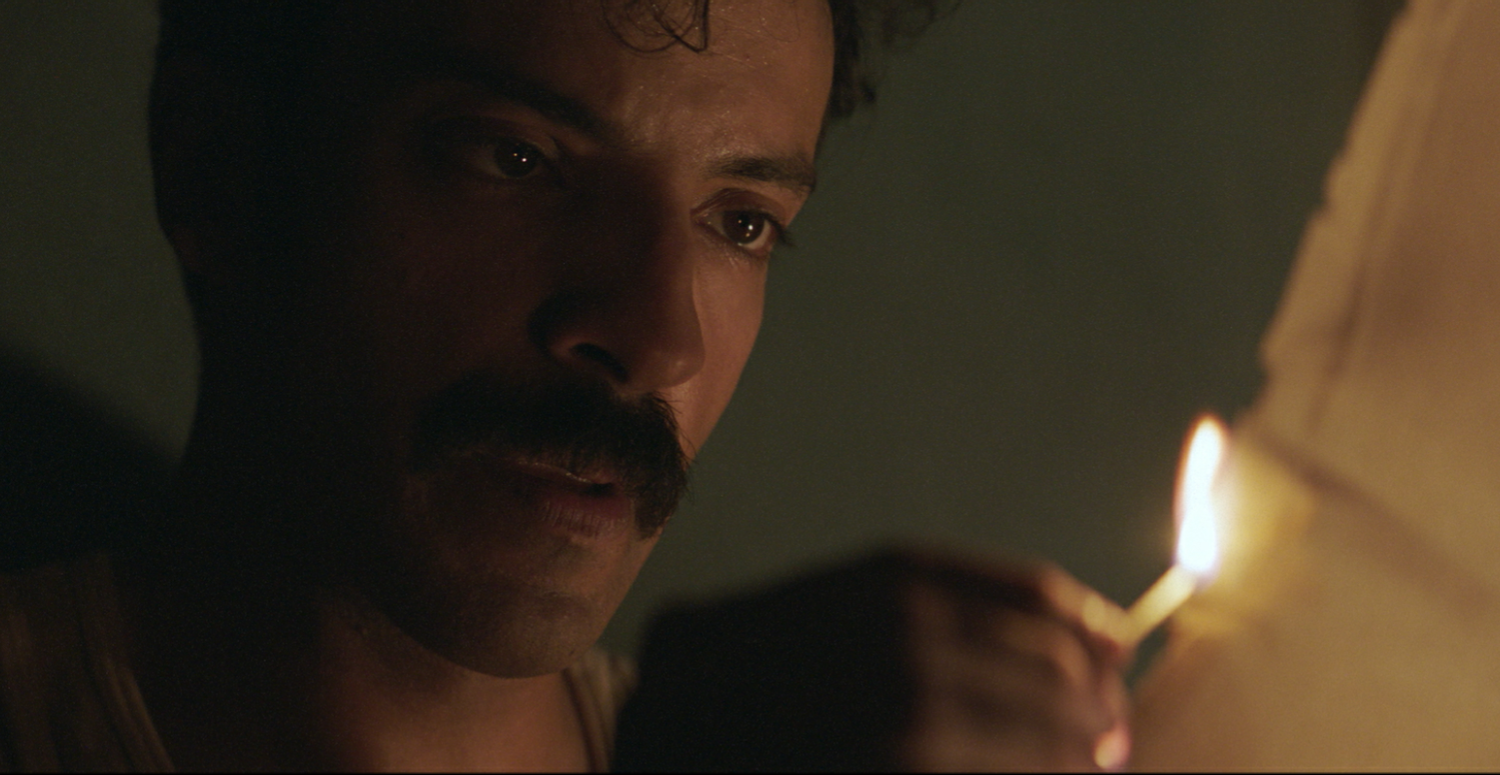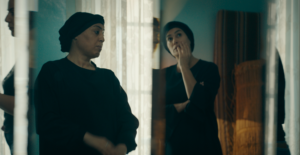Norah
نورة
2024

FR EN
Un village perdu dans le désert, 1996. Norah, orpheline recueillie chez sa tante, s’ennuie enfermée dans une maison fade et rêve d’un ailleurs. Elle regarde tristement son reflet et idolâtre des photos de femmes glanées dans des magazines qu’elle lit en cachette. Le seul grand évènement qui advienne – et indirectement d’abord – dans son quotidien, c’est l’arrivée depuis la ville d’un nouvel instituteur pour les garçons. Norah apprend par son frère qu’il sait dessiner et souhaite alors à tout prix qu’il lui fasse son portrait.
Premier long-métrage de fiction de Tawfik Alzaidi, tout premier film saoudien présenté au Festival de Cannes, « Norah » est aussi le premier de la péninsule arabique à être récompensé d’une mention spéciale à la sélection Un certain regard. Financé par un fonds saoudien – comprendre ‘avec l’aval de Riyad’ – le film se veut une timide vitrine de l’ouverture de la société et du régime wahhabites, toujours en proie à de nombreux paradoxes. Preuve en est avec cette sensation de budget limité, rehaussée par le souvenir qu’il y a encore quelques années, le cinéma était interdit en Arabie Saoudite (plus précisément de 1983 à 2018).
Tourné à Al-‘Ula, oasis paradisiaque devenue une destination touristique, « Norah » sert certes une forme de propagande, mais le long-métrage porte aussi en lui toutes les contradictions des changements politiques locaux. À commencer par les ellipses qui suppriment toute forme de violence, mais aussi les dialogues, souvent sobres, parfois mécaniques, où il faut lire entre les lignes.
Rappelant non sans prise de position un passé à la fois proche et trouble, le film paraît malgré tout balbutiant. Si en effet Norah (Maria Bahrawi) et Nader (Yaqoub Alfarhan) convainquent par leurs introspections silencieuses, ils ne parviennent pas à ôter cette sensation d’inabouti. « Norah » traite certes de la question protéiforme de l’image dans une société wahhabite aux penchants ultra-conservateurs, mais l’on aurait aimé gratter, creuser dans ce qui se cache derrière ces apparences. « Il n’y a rien de pire que les rêves », dit Norah ; je dirais même : il n’y a rien de pire que la suggestion interdite et refoulée.
1996, a village lost in the desert. Norah, an orphan who has been taken in by her aunt, is bored and locked away in a drab house, dreaming of somewhere else. She stares sadly at her reflection and idolizes photos of women gleaned from magazines that she reads in secret. The only major event that occurs – indirectly at first – in her daily life is the arrival from the city of a new teacher for the boys. Norah learns from her brother that he can draw, and desperately wants him to paint her portrait.
Norah is Tawfik Alzaidi’s first feature film, and the very first Saudi film to be presented at the Cannes Film Festival, as well as being the first from the Arabian Peninsula to be awarded a special mention in the Un Certain Regard selection. The film, which was financed by a Saudi fund – in other words, with Riyadh’s approval – is a modest demonstration of the openness of the Wahhabi society and regime, which is still beset by a number of paradoxes. Proof of this is the limited-budget feel, heightened by the memory that just a few years ago, cinema was banned in Saudi Arabia (more precisely, from 1983 to 2018).
Filmed in Al-‘Ula, a paradisiacal oasis that has become a tourist destination, “Norah” certainly acts as a kind of propaganda, but the film also conveys all the contradictions of local political change. Starting with the ellipses that erase all forms of violence, but also the dialogues, often understated, sometimes overly convoluted, where you have to read between the lines.
The film nonetheless feels somewhat underdeveloped, recalling a past that is both close and troubled. While Norah (Maria Bahrawi) and Nader (Yaqoub Alfarhan) are convincing in their silent introspections, they fail to remove the feeling of an unfinished project. “Norah” certainly deals with the multifaceted issue of image in a Wahhabi society with ultra-conservative tendencies, but it would have been nice to scratch the surface, to dig deeper into what lies behind these appearances. “There’s nothing worse than dreams”, says Norah; and I’d even go so far as to say: there’s nothing worse than forbidden, repressed suggestion.

